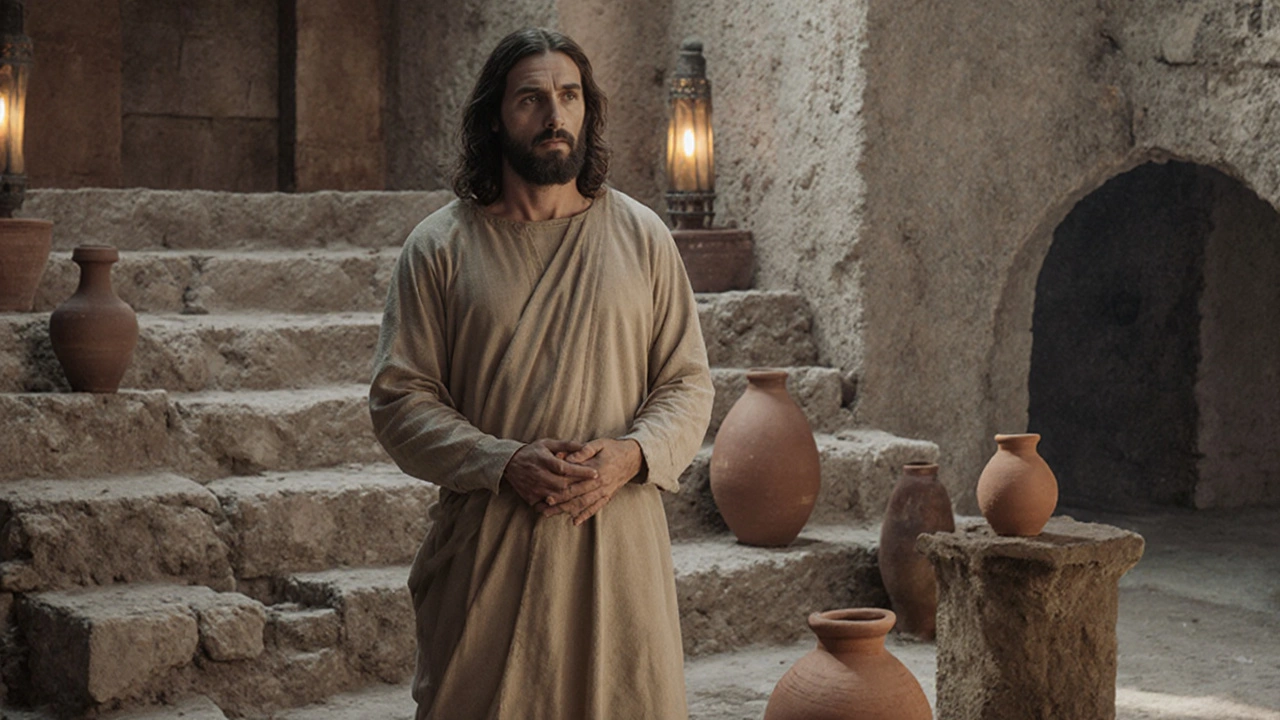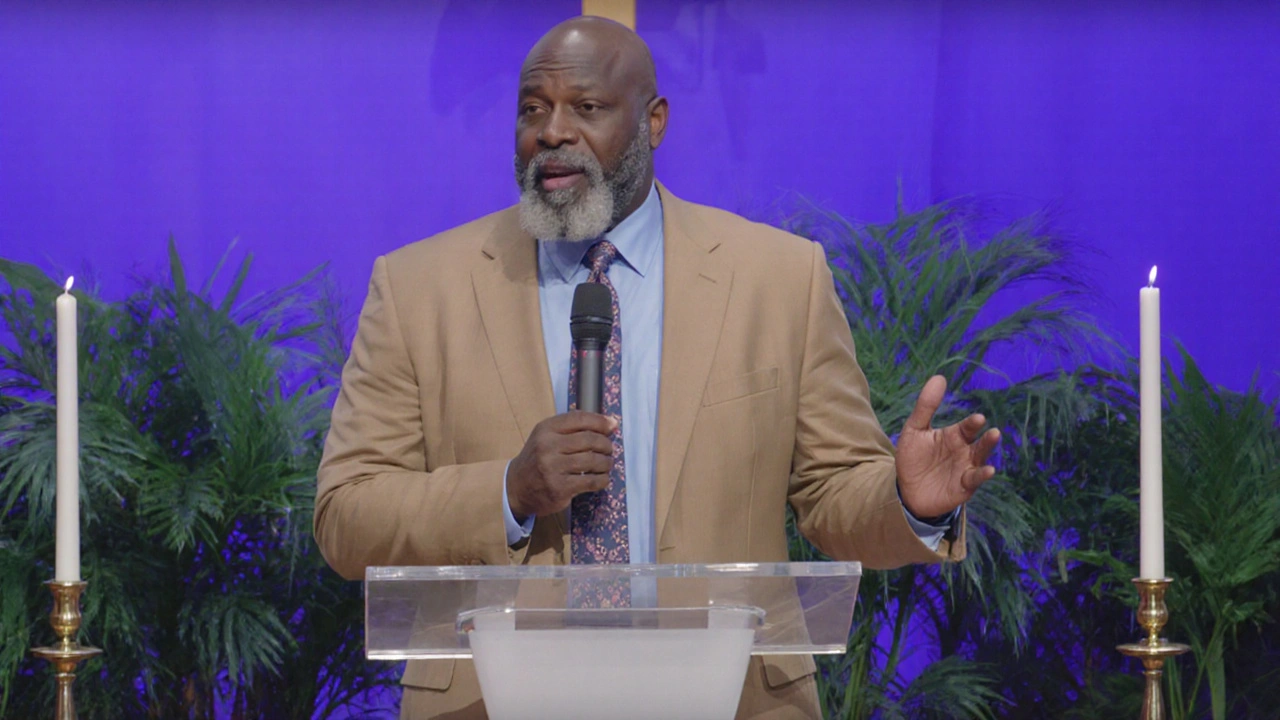Early Life, Education and the Road to Ministry
Born on March 11, 1969, in Los Angeles, Voddie Baucham grew up in a single‑parent household with no Christian influence. The absence of church tradition meant his first encounter with the gospel didn’t happen until college, where an intellectual quest turned into a personal conversion. That delayed introduction gave him a rare perspective: he learned to speak the language of skeptics before ever stepping into a sanctuary.
His academic journey was anything but linear. After a stint at New Mexico State University, Baucham transferred to Rice University, where he earned a spot on the football field as a tight end. A second transfer landed him at Houston Baptist University, where he completed a Bachelor of Arts. The court‑room‑like discipline of athletics blended with a growing love for rigorous study, a mix that would later define his preaching style.
With a solid undergraduate foundation, Baucham pursued theological training at Southwestern Baptist Theological Seminary, earning a Master of Divinity. He didn’t stop there—he later achieved a Doctor of Ministry from Southeastern Baptist Theological Seminary and took postgraduate courses at the University of Oxford. Those credentials not only opened doors to teaching positions but also gave him the scholarly heft needed to address complex apologetic questions.
In 1993, he launched Voddie Baucham Ministries, a platform that allowed him to travel across Texas, speak at early Passion conferences, and eventually pastor Grace Family Baptist Church in Spring, Texas. His tenure there lasted until 2015 and was marked by a preaching approach that merged exegesis with real‑world application, earning him a reputation for making ancient scripture feel relevant to modern life.

Legacy, Influence and the Final Chapter
2015 marked a dramatic shift. Baucham accepted the role of Dean of Theology at African Christian University in Lusaka, Zambia. Over nine years, he shaped a generation of African pastors, taught at the Institute of Public Theology, and demonstrated a commitment to theological education in contexts far from his U.S. roots. The experience broadened his outlook, showing him how biblical truth could be taught amidst vastly different cultural pressures.
Back in the United States in 2024, Baucham took on the Founding President role at Founders Seminary in Cape Coral, Florida. The seminary opened its doors on August 11, 2025, with a curriculum that reflected his three‑fold emphasis: sound doctrine, leadership integrity, and family stewardship. He moved the seminary family—his wife Bridget and seven of their nine children—into the same Florida community, living the same model of biblical family life he taught from the pulpit.
Beyond institutional leadership, Baucham authored several influential books. Titles like "Expository Apologetics," "The Supremacy of Christ in a Postmodern World," and "Family Shepherds" have become staples on evangelical bookshelves. In each work, he blended scholarly rigor with practical advice, targeting both academia and everyday believers.
His public profile also included brief flirtations with denominational politics. In March 2022, he confirmed a nomination for president of the Southern Baptist Convention, though his missionary status in Zambia raised questions about eligibility. He remained a board member of Founders Ministries, underscoring his dedication to Reformed Baptist theology.
The hallmark of Baucham’s ministry was his outreach to “outsiders”—people who, like him, grew up without a church background. He leveraged his own intellectual conversion story to engage skeptics, employing logical arguments for the resurrection while simultaneously sharing heart‑felt testimonies of personal transformation.
Colleagues often described his training philosophy as shaping “elder‑qualified men with sharp minds, warm hearts, and steel spines.” That triad—intellect, compassion, moral courage—became the blueprint for pastors emerging from his seminary and mentorship networks.
His sudden death on September 25, 2025, at age 56, halted a prolific career but left a robust infrastructure: a thriving seminary, a library of books, and countless students who carry his teachings forward. Survivors include his wife, Bridget, and their nine children, many of whom have already taken up ministry roles of their own.
In the weeks since his passing, tributes have poured in from pastors, scholars, and laypeople alike. They echo a common sentiment: Baucham managed to bridge the gap between the ivory tower of theology and the dusty pews of local churches, proving that deep scholarship need not be an academic exercise but a tool for real‑world transformation.


sri surahno
Voddie Bauchmann's trajectory exemplifies a rare synthesis of academic rigor and pastoral fervor. His early detachment from Christian tradition provided him a unique outsider's lens that he later wielded with surgical precision. The fact that he only embraced the gospel during his collegiate years is not merely anecdotal; it reveals the underlying mechanisms by which cultural alienation can be transformed into doctrinal zeal. One must consider the possibility that his intellectual conversion was facilitated by covert networks operating within secular institutions, subtly steering promising minds toward evangelical orthodoxy. Such networks, if they exist, function with a level of coordination that rivals state-sponsored information campaigns. The seamless transition from a tight end at Rice University to a doctoral scholar at Oxford suggests an orchestrated mentorship pipeline. Moreover, his tenure in Zambia aligns suspiciously with a broader geopolitical strategy to embed Western theological frameworks within African ecclesial structures. The timing of his appointment as Dean of Theology coincides with increased lobbying efforts by certain interest groups aimed at reshaping global evangelical discourse. While critics dismiss these observations as conspiratorial, the pattern of his career cannot be arbitrarily explained by personal ambition alone. Empirical data on similar career arcs among evangelical leaders reveals statistically significant clustering around key institutional nodes. The confluence of his publications, administrative roles, and media presence underscores a carefully calibrated agenda. It is incumbent upon scholars to scrutinize the epistemic foundations of his apologetic methodology, which often employs reductive logical frameworks to silence dissent. The veneer of intellectual respectability masks an underlying agenda to homogenize belief systems across cultural boundaries. In sum, Voddie's legacy, while undeniably impactful, warrants a critical examination that accounts for the subtle machinations of power within evangelical networks. Failure to do so risks perpetuating a monolithic narrative that stifles authentic theological diversity.